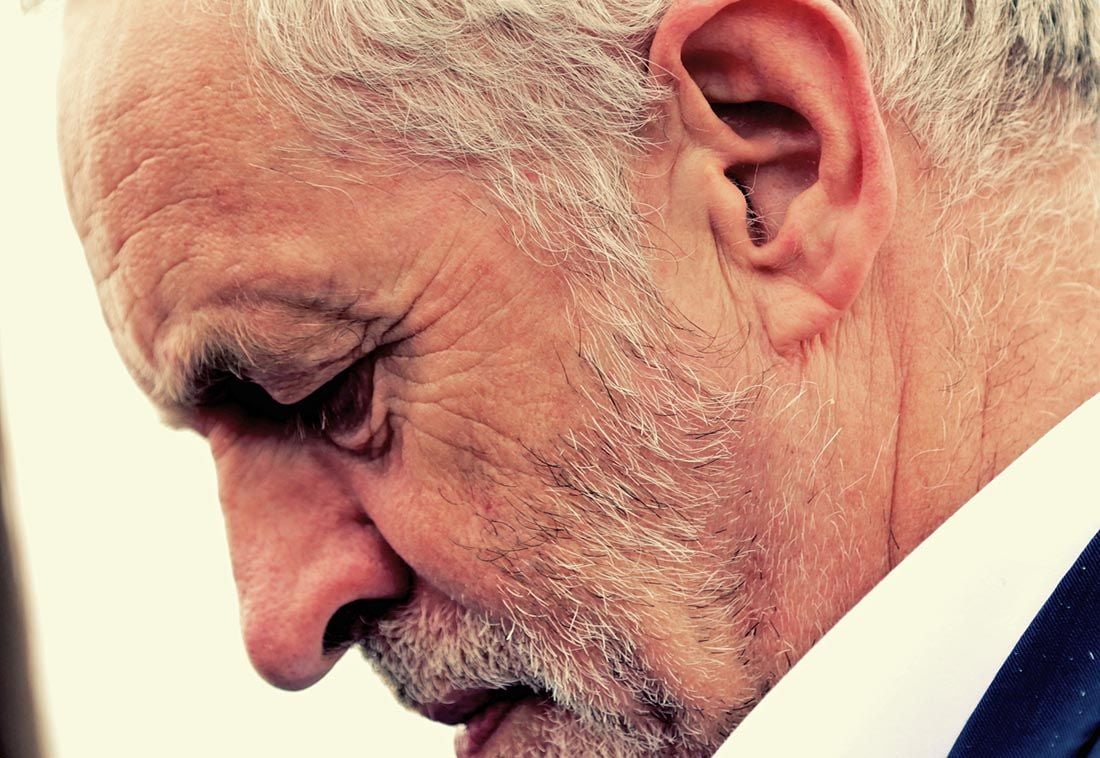Corbyn's Labour Signal Close Alignment to Conservatives on Brexit Policy

Above: Jeremy Corbyn, leader of the Labour party. Image © Andy Miah, Flickr
Labour leader Jeremy Corbyn updated us on his party's Brexit position - and the key takeaway is there is little clear water between the two main parties.
Jeremy Corbyn wants a negotiated customs union with the EU after Brexit while confirming his party will leave the single market; echoing the Conservative party's approach to negotiate a bespoke deal on the customs union and single market.
Corbyn maintains Labour want "full access to European markets" while confirming free movement with Europe will end. These twin desires are immediately at odds with the EU's assertion that free access to the single market cannot be divorced from the freedom of movement of EU citizens and echoes the famous Boris Johnson "have your cake and eat it" approach.
Corbyn's speech was heavy on attacks against Theresa May's government and dwelt on domestic politics that includes those areas where Labour are strongest - the NHS and anti-corporatism.
As a result, the finer details on the party's position regarding Brexit were absent and leaves some questions.
The University of Kent’s Dr Adrian Pabst, an expert on the Labour Party, says the party's new position is unclear in several respects:
"First, on the question of national sovereignty, how will Labour answer the charge of claiming to respect the referendum result while in reality submitting to EU rules without having a say and accepting the jurisdiction of the European Court of Justice?
"Second, on party politics, how will Labour persuade Tory rebels to go against the Conservative Party manifesto and vote down their government, which would plunge the Tories into the greatest crisis since the split over the Corn Laws in the mid-nineteenth century?
Worth noting right now how similar a lot of govt + labour language is on Brexit - 'bespoke' + 'we're leaving the European Union not leaving Europe' both in Corbyn's speech
— Laura Kuenssberg (@bbclaurak) February 26, 2018
"Third, on Labour’s electoral base, how will Corbyn address widespread concerns among its working-class voters about the volume and pace of immigration? He talks mostly about ‘jobs, rights and living standards’ and treats immigration as a purely economic issue rather than a cultural issue that raises questions of identity."
Pabst believes traditional Labour voters in the North and across the Midlands may switch to the Conservatives, which would put at risk Labour’s chances of winning the next election. "Therefore Corbyn’s announcement may yield short-term political gains at the expense of long-term electoral losses."
From a currency perspective, we would say Labour do appear to looking to be more closely aligned to Europe; for instance they do not intend to pursue trade deals with China and the United States and they would therefore likely be able to secure a deal with Europe in quicker time as a result.
Therefore, while Labour's policy on the future post-Brexit relationship is similar there are enough signs to suggest theirs would be a 'softer Brexit'. A 'softer Brexit' is theoretically better for Sterling in that implies an element of 'business as usual' for European and UK trade.
But for Labour's Brexit vision to become a reality they must first win a general election and elections always generate the kind of uncertainty that sends a currency lower; this is moreso the case now as Labour's domestic policies have diverged significantly from those of the Conservatives.
"Businesses have their eyes wide open on Labour’s overall rhetoric on re-nationalisation. If Labour turns its back on good collaboration between the Government and the private sector - putting vital sectors solely in the hands of politicians - public services, infrastructure and taxpayers will ultimately pay the price. The CBI will continue to engage with the Labour Party to find better solutions to the shared challenges we face," says Carolyn Fairbair, CBI Director-General.
The chances of Labour coming to power before the next election, scheduled for 2022 are put at 15% by Kallum Pickering, Senior UK Economist with Berenberg. For Labour's vision of Brexit to stand any chance some members of the parliamentary Conservative party and/or DUP, must side with Labour in Parliament.
"All hell would break loose in the Conservative Party, to put it mildly. It would risk splitting the party in two and could risk fresh elections. This risk is not negligible – hence our 15% chance of Corbyn in No. 10 before 2022," says Pickering.
Berenberg have argued before that "the Corbyn threat is the glue that binds the opposing factions of government together. We think that both the Remainers and Brexiteers inside government would rather compromise on a second-best Brexit – relating to their own preferences - than risk losing power. As a result, should Labour put forward such a motion, we would not expect parliament to carry it."



